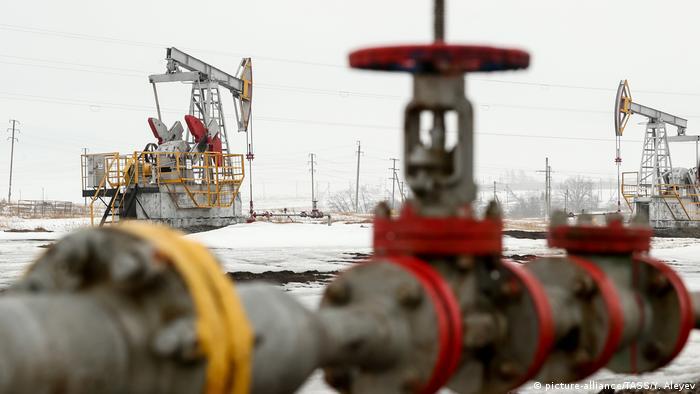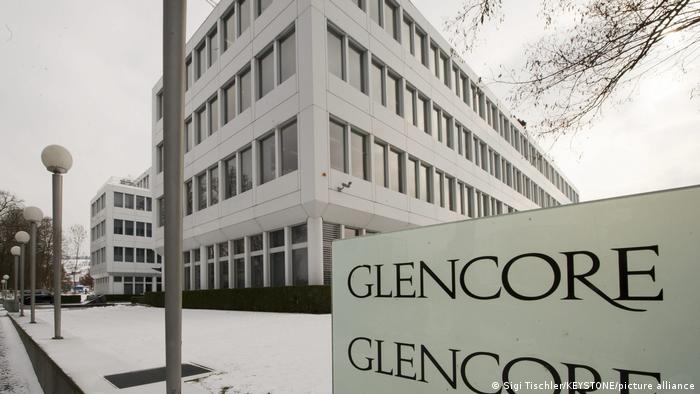Notifications
 admin
admin![]() -
March 18, 2022 -
Business -
Putin
Ukraine War
Swiss commodities
-
2.6K views -
0 Comments -
0 Likes -
0 Reviews
-
March 18, 2022 -
Business -
Putin
Ukraine War
Swiss commodities
-
2.6K views -
0 Comments -
0 Likes -
0 Reviews

The Ukraine war has put Switzerland's commodities sector in the spotlight. The country makes billions trading raw materials but chooses not to look too closely into the details.
Switzerland is known for being an important monetary center. However, less in the limelight are their many commodities sectors.
Although the country is far from all the international trade routes, without access to the sea, without previous colonial territories and any necessary essential resources of its own, it is one of the most important trading hubs for raw materials on the planet. Oliver Classen, media officer at the Swiss NGO Public Eye, states that "this sector accounts for a much larger part of the GDP in Switzerland than tourism or the equipment industry."
According to a Swiss government report from 2018, the trade volume reaches nearly $1 trillion ($ 903.8 billion). The five most popular firms in Switzerland, according to annual turnover, are not pharmaceuticals or banks but commodity traders.
80% of basic Russian materials traded through Switzerland
About a 3rd of the oil traded internationally is bought and sold in Geneva.
Two-thirds of the trade-in base metals such as aluminum, copper and zinc are conducted in Switzerland, as are two-thirds of the trade-in grain. Russia also has advantages. According to a report by the Swiss embassy in Moscow, some 80% of basic Russian materials are traded through Switzerland. Russian oil and gas flow largely thanks to offers signed on Swiss desks.
Gas and oil exports are the primary sources of income for Russian President Vladimir Putin. They represent 30 to 40% of the Russian budget. In 2021, Russian state corporations made around $180 billion (EUR163 billion) from oil exports alone. This is cash now being used to fund the war in Ukraine.
Loopholes in Swiss legislation like their cheese
At a current anti-war demonstration in the Swiss capital, Bern, Angela Mattli, joint managing director at Public Eye, stated that Swiss commodity traders continued to disregard what the Russian state was finishing with this money. Furthermore, she lamented that all of this was "rather legal within the structure of Swiss legislation, which had substantial loopholes for commodity traders."
Likewise, politicians have criticized: "Switzerland has to shut off the tap to the Russian war chest," said Cedric Wermuth from the Swiss Social Democratic Celebration. He said that Switzerland had efficient utilize-- the commodities trade and the possessions of wealthy Russians. So far, the sanctions enforced by the EU and the United States do not issue the operation in basic materials, even if the United States has stated that it no longer wishes to import Russian oil.
Because of its historical status of neutrality, Switzerland does not impose sanctions. Instead, through its Embargo Act, it can only enact sanctions that others have purchased, for example, major trading partners or the UN Security Council.
Switzerland has capital
Therefore far, Switzerland has handled its golden calf, the commodities trade, with kid gloves.
Primary materials are frequently traded directly between governments and through commodities exchanges. However, they can likewise be sold quickly, and Swiss companies have specialized in direct sales. One crucial factor is that there is enough of the essential primary material for Switzerland's commodities-- capital.
Depending on the present rate of crude oil, a tanker load can cost $100 million-- money that most businesses do not need to hand. Therefore, instruments for managing such a company have been developed in Switzerland.
A bank will provide a loan to a trader and, as collateral, get a document making it the owner of the commodity. The system offers traders more credit lines without their creditworthiness being examined, and the bank has the value of the item as security.
Absence of policy
The raw materials usually do not touch Swiss soil however go directly from the country of origin to the recipient country. The Swiss National Bank publishes specific details but no precise info about the circulation of raw materials.
" The entire commodities trade is under-recorded and underregulated," said Elisabeth Bürgi Bonanomi, a senior speaker in law and sustainability at Bern University. "You have to dig around to gather information, and not all information is offered."
The owners of unlisted commodity trading companies in Switzerland are mostly unidentified. "There is rather a couple of businesses that fly under the authorities' radar and whose actual beneficiaries are not known because, for example, they are handled in nontransparent overseas holdings," said Classen.
The lack of guidelines is very enticing to commodity traders-- primarily since many raw materials are mined in non-democratic countries. "Unlike the monetary market, where there are rules for dealing with money laundering and unlawful or invalid financial flows, and a monetary market supervisory authority, there is currently no such thing for commodity trading," monetary and legal expert at Public Eye David Mühlemann told the German broadcaster ARD.
"Commodity trading needs to be regulated," he stated. "There needs to be openness of payments from traders to governments, particularly to autocratic programs that divert these funds into their own pockets, or perhaps finance wars. And this is not just about Russia."
Oliver Classen from Public Eye explained that some commodity traders had ended up being lending institutions to entire countries. Glencore, for instance, had given over $1 billion to Chad as credit in return for access to the country's petroleum reserves.

The government relies on banks to police themselves.
Even though the Swiss Federal Council acknowledges the issue, it continues to rely on the indirect monitoring of commodity traders by banks themselves, according to Amnesty International. In its eyes, there is no requirement for a commodities law or a particular supervisory body," states the international human rights NGO.
For many years, the Swiss NGO Public Eye has required a supervisory body for the commodities sector based upon the one for the financial market model.
A Swiss Green Celebration proposal along these lines stopped working in parliament in 2015. However, the Greens now intend to make another such proposal.
Thomas Mattern from the Swiss People's Celebration (SVP) has spoken out versus such a move, firmly insisting that Switzerland maintain its neutrality; "We do not require even more guideline, and not in the commodities sector either."
Suppose politicians keep debating and Western countries do not impose sanctions on primary materials. In that case, Swiss commodity traders will continue making millions from Russian raw materials and help to fill Putin's war coffers.
The five most prominent companies in Switzerland, according to annual turnover, are not banks or pharmaceuticals but commodity traders. He said that Switzerland had efficient leverage-- the commodities trade and the possessions of wealthy Russians. One crucial factor is that it is undoubtedly adequate of the necessary raw material for the commodities trade in Switzerland-- capital.
The owners of unlisted commodity trading businesses in Switzerland are mainly unidentified. Even though the Swiss Federal Council acknowledges the issue, it continues to rely on the indirect monitoring of commodity traders by banks themselves, according to Amnesty International.
